Thousands of refugees and migrants are currently in Bosnia, trying to cross the border into the EU. Among them are Iranians who have fled their country of birth due to social and political repression and a lack of economic opportunities at home. IranWire’s correspondents met with two such Iranians near the Croatian border.
Milad Baniassad is 28 years old. He lives in an old, abandoned nursing home in the Bosnian city of Bihać, close to the Croatian border. The building has no windows. His tent is pitched there among the rubble, with just a fireplace to cook food on and keep himself warm.
Milad is an Arab from Ahvaz, Khuzestan province. He left Iran, his parents, and his sisters behind three years ago in the hope of forging a better life for himself in the European Union. “The Iranian government does not allow people in our region to speak our own language,” he told IranWire. “In general, the government does not want us. We cannot speak the Arabic language or wear our traditional clothes. We can only find work selling vegetables at the market, as all the better jobs are taken by people from other parts of Iran. There is no future for us there. That’s why I left.”
Several other people share a room with Milad, and the whole dilapidated building is full of migrants and refugees, mostly from Pakistan. According to the United Nations Human Rights Council, around 8,000 refugees and migrants are currently in Bosnia, which is located on one of the principal routes to the EU from West Asia. Between 2019 and the end of 2020, the UNHCR reports that 4,933 Iranians have come to southeastern Europe. From here, they generally try to cross the border into Croatia to head toward Italy, but the Croatian border police prevent many of them from crossing.
Milad says he was forced to speak Persian back at home. This angered him, as did the way that Iran’s central government treated him and other people in the region. He would often get into fights with his teachers when he was young, he explains, because they forced him to speak Persian.
“You know,” he says, “I just wanted a normal life like any other person. I just wanted to make some money and have a family. But in Iran, such things are not expected of a person like me. In Ahvaz, the government even brings people in from the outside to take the good jobs, while I had to work three jobs, 50 hours a week, just to earn a pittance.”
Like many others, Milad now dreams about a fresh start. He wants to get to England if possible, but any country with some possibilities will do. He has tried to cross the Croatian border four times so far, without luck. But he is determined to continue trying because the prospect of returning to Iran is, to him, unthinkable.
The Brutality of Life on the Border
According to the Danish Refugees Council, Croatian border police pushed back more than 16,000 refugees and migrants in 2020, often violently. Many refugees and migrants have complained about being beaten and humiliated by Croatian forces. The issue has also been documented by both Human Rights Watch and Amnesty International.
The Croatian police are not the only threat posed to migrants. Anoosh Mostafaei, 24, who is also from Iran, was stabbed half a year ago by another refugee while trying to cross the border. Mostafaei has also experienced violence from Croatian police, and he says that they have repeatedly taken his clothes and set them on fire, leaving him with nothing.
“Despite all of this,” he says, “I will not go back to Iran. If Europe does not want me, I will go to some other Arabic country, where I can live. I have no choice. I cannot stay in Iran because I have no rights in Iran. It’s pretty simple.”
There figures on how many Iranians are currently in Bosnia are inconclusive, but the International Organization for Migration, says that most refugees in the country come from Pakistan, Afghanistan, Iraq, Iran, and Syria. Most are single men like Milad and Anoosh.
Anoosh was born in Tehran but lived for most of his life in Tabriz. He worked as a coach in a fitness center but decided to leave because of the lack of opportunities and the need to earn more money to support his family. Because his mother tongue is Turkish, he says, he was sidelined in Iran and arrested repeatedly.
“I was always in and out of the police station,” he says, “If you complain about anything at all, even something like the high price of chicken, you are arrested. You have no right to speak up. You have no rights at all.
“The Iranian state does not include my people in its country. It doesn’t pay attention to us and treats us like we are from outer space. People are very unhappy about this; many feel the same as me. The current situation is such that if you want a better life, you have to leave. It is not possible to stay.”
Related coverage:
The Suspended Lives of Iranian Refugees in Bosnia
Hungarian Refugee Camp Closed After European Court Ruling
Refugees Fear Covid-19 in Crowded Greek Camp
Fact File: What Can You Expect as an Iranian Asylum Seeker in Turkey?
visit the accountability section
In this section of Iran Wire, you can contact the officials and launch your campaign for various problems





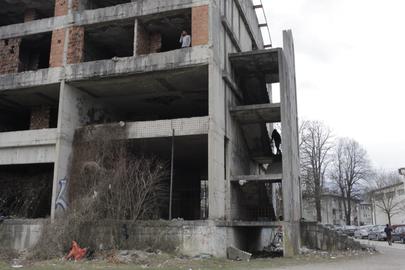
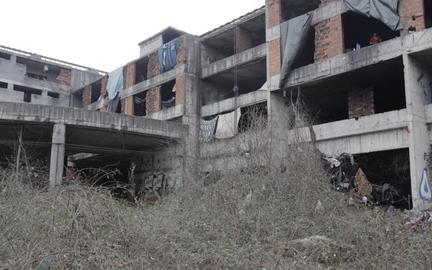
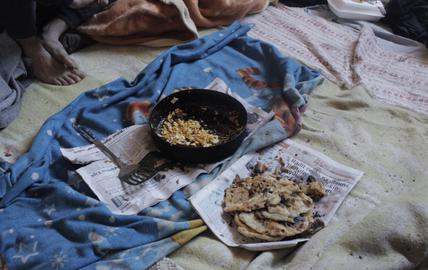
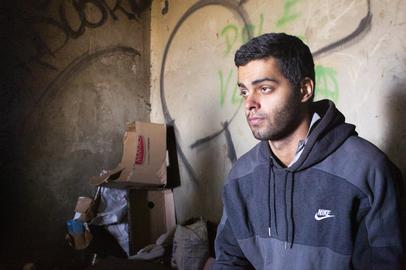



















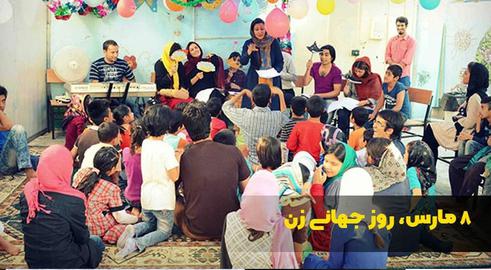
comments